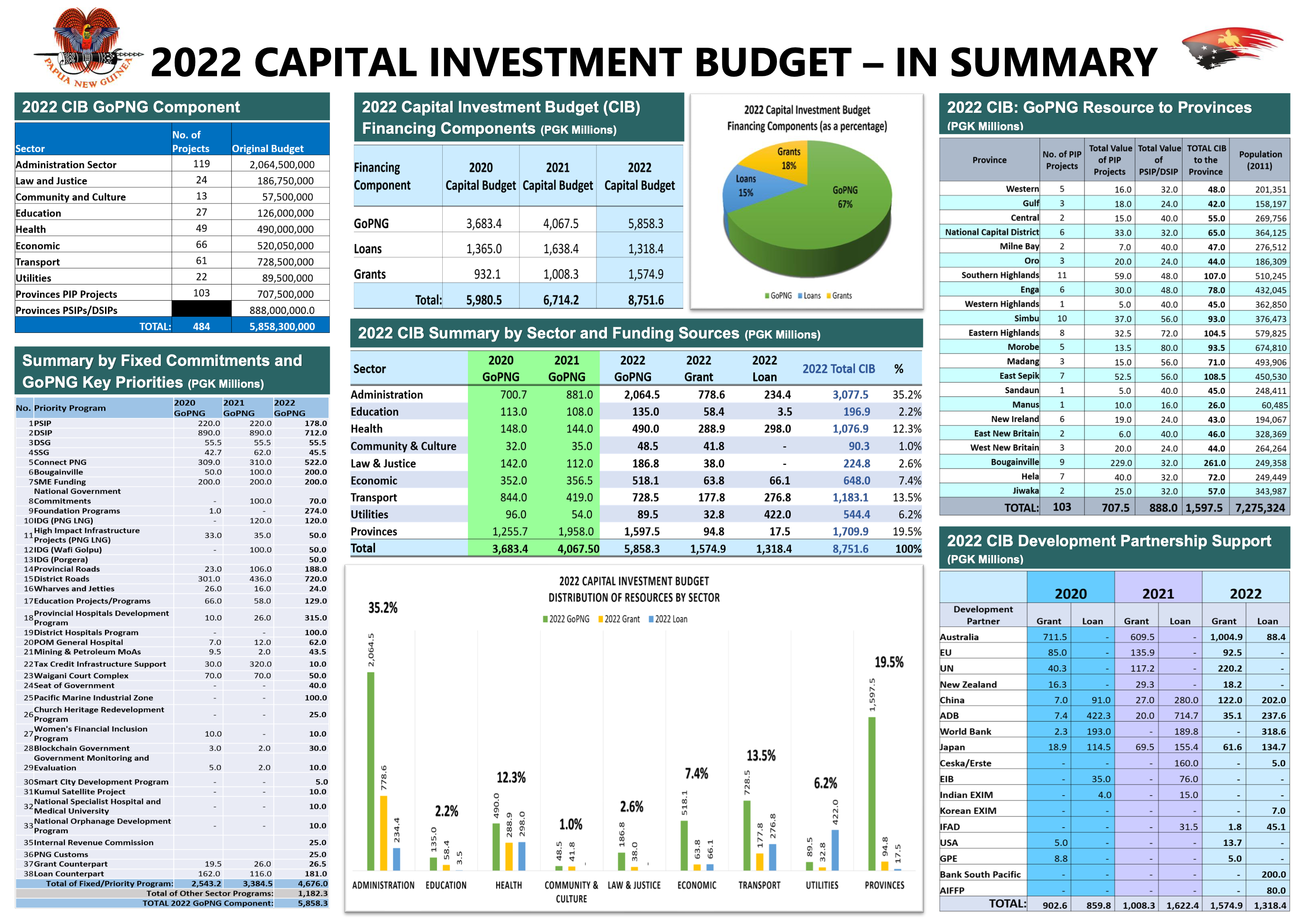NAO Support Unit

THE NATIONAL AUTHORIZING OFFICER SUPPORT UNIT
The National Authorizing Officer Support Unit (NAO SU) is part of the Development Cooperation and Management Division (DCMD) within the Department of National Planning and Monitoring (DNPM).
The NAOSU provides the vital role in supporting the Office of the National Authorizing Officer (NAO) in performing its function in the oversight and management of the European Development Fund (EDF). EDF has been the instrument of European Union's development policy aimed at African Caribbean Pacific (ACP) countries. European Union contribution to PNG's development efforts since 1987 amounts to approximately K2 billion.
The NAO is the National Planning Minister who is assisted by Secretary for the Department of National Planning and Monitoring and Deputy Secretary Policy who are both Deputy NAOs who have supporting roles and responsibilities in EDF decision making and management. The NAO SU is headed by an Assistant Secretary and comprises of three sections, Finance & Contracts (F&C), Operation and Administration. Officers from the Operations or Programming and Monitoring section are all civil servants while F&C and Administration Officers are all contracted officers.
The NAOSU's Operation section is responsible for policy, programming and monitoring whereas Finance and Contracts provides support in administration of contracts, finance and budget as well as financial evaluation, audits and verification while Administration supports logistics and administration aspects of the Unit. The overall role of the NAOSU is to oversee and effectively manage the planning, programming and implementation of all EDF programmes and projects in PNG.The NAOSU also performs the delegated responsibility of being the Contracting Authority on some of EDF projects on behalf of the PNG Government and the EU.
PNG is currently implementing programmes under the 11th EDF which is also the last financing envelope under the Cotonou Partnerships Agreement (CPA). The CPA is a 20-year agreement between the EU and the ACP countries which ended in 2020. Key elements under this agreement have supported the areas of Development Cooperation, Trade and Market Access, Humanitarian Aid, Concessional Loans and Technical Assistance.
ONGOING EDF PORTFOLIOS
PNG's 11th EDF National Indicative Programme (NIP) signed in June 2014, provides an overall framework of EU cooperation with PNG in the context of European Union's support to be provided under the 11th EDF. The broad objective of the NIP is still aimed at contributing to poverty reduction and having impact on improving livelihoods through equitable and broad-based sustainable development. The 11th EDF NIP for PNG is crafted in the spirit of cooperation and follows on after the 10th EDF with similar pillars and thematic areas of intervention. The specific projects have been developed selected along the National Governments development challenges and aspirations in and in improve the socio-economic development status of PNG. This is consistent with National Government Policies (Vision 2050, DSP, MTDP and the MDGs).
The total envelope under the 11th EDF is Euro 154 million, covering three major priority areas. An additional EUR 15 million has been parked under the Regional Indicative Programme (RIP) focal sector & i.e. Economic integration, although specifically for PNG eventually. Provided below is an overview of the three priority areas.
1) Rural Entrepreneurship, Investment and Trade (STREIT)
FA signed on the 25th June 201, with a project value of Euro 85m. The STREIT programme provides support to cocoa and vanilla industry development and coastal fisheries. Lead implementing agency is be FAO (Food & Agriculture Organisation). Programme will be implemented in the MOMASE regional with an initial phase in the East and West Sepik provinces.
2) Water, Sanitation and Hygiene (WaSH) Part.1 (RURAL WASH)
FA signed on the 6th of July 2017, with a project value of Eurp 33,1m. The objective is to improve the quality of life of women, men, children through contributing to increased access to safe, adequate and sustainable water supply, sanitation and improved hygiene practices in line with the National WASH Policy. The program is implemented in four targeted districts of Nawae (Morobe), Central Bougainville (AROB), Hagen Central (WHP) and Goroka (EHP). In 2020, the project will move into full implementation of rolling out of the WaSH in School and WaSH in health Centres with in the four pre-selected districts.
3) Water, Sanitation and Hygiene (WaSH) Part.2 (URBAN WASH)
FA signed on the 15th of December 2020, with a project value of Euro 10,0m. The objective is to improve the quality of life and health of the urban population of PNG through increased sustainable access to safe, adequate, and sustainable water supply and sanitation services. The program will be implementation through a contribution agreement with UNICEF, in close collaboration with Water PNG. During the inception phase a comprehensive technical and financial assessment for the provision of water and sanitation in pre-selected towns (Angoran, Wau, Banz and Buka) will be conducted.
4) Policy Reform and Good Governance
The FA EU-PNG Partnership for Good Governance was signed on the 15th of December 2020. A project value of Euro 26,9m. The overall objective is to promote good governance and respect for the rule of law. The specific objective: (i) improve integrity, fight against corruption and crime prevention within the Royal PNG Constabulary/Police force, (ii) improve gender responsive accountability, transparency, efficiency and credibility of the justice system, and (iii) improved effectiveness of the Independent Commission against Corruption. The program will be implementation through Budget Support and Indirect management with GoPNG/NAOSU, UNDP and UN Organization against Drugs and Crime (UNODC).
5) Non Focal Sector: NAO Support Measures 3
The FA for Support to implementation of EU-PNG Cooperation was signed on the 6th of March 2017, with a project value of Euro 9,0m. The overall objective is to contribute to the implementation of GoPNG's poverty alleviation policies while ensuring responsible and sustainable development. The specific objectives and expected results of the programme are, (i) Support the implementation of the GoPNG's national policy priorities, (ii) Ensure the efficient and effective implementation of current and future EDF programmes, and (iii) Support the integration of the Aid Effectiveness Agenda into the Official Development Assistance (ODA) implementation modalities in PNG. The Program is housed in the Department of National Planning & Monitoring
NEW EU INTERVENTION BETWEEN PAPUA NEW GUINEA AND THE EUROPEAN UNION
The new Multi-Annual Indicative Programme (MIP) 2021-2027 underpins the EU's commitment to enhance its strategic relations with PNG and the Pacific given Europe's political and economic partnership with the Pacific has increasingly with the inter-connected and rapidly changing world. The MIP is embedded in the European Union (EU) Strategy for Cooperation in the Indo-Pacific, and the new EU-ACP Agreement is aligned with the global Strategy for EUs Foreign and Security Policy, and in support of Multilateral agreements such as; Paris Agreement; Convention on biological diversity; and New EU-PNG Partnership.
To strategically enhance relations with PNG, EU's new Multi-Annual indicative Programme (MIP) 2021- 2022 is aligned with the 2021 EU Strategy for Cooperation in the Indo-Pacific including the call for support to post-COVID recovery, and enhanced collaboration with other regional partners, the support to human rights and the rule of law, and the inclusion of specific goals such as sustainable management of natural resources, the preservation of biodiversity and the fight against climate changed and environmental degradation. Considering the unique context of PNG, the MIP builds on the track-record and lessons learned from cooperation under programmes financed by the 11th EDF.
The new MIP between the EU and PNG has three priority areas:
(i) Forestry, Climate Change and Biodiversity (FCCB) Nexus;
(ii) Water Sanitation and Hygiene (WASH); and
(iii) Transparent and accountable Governance.


